How to Eat Muesli for Weight Loss?

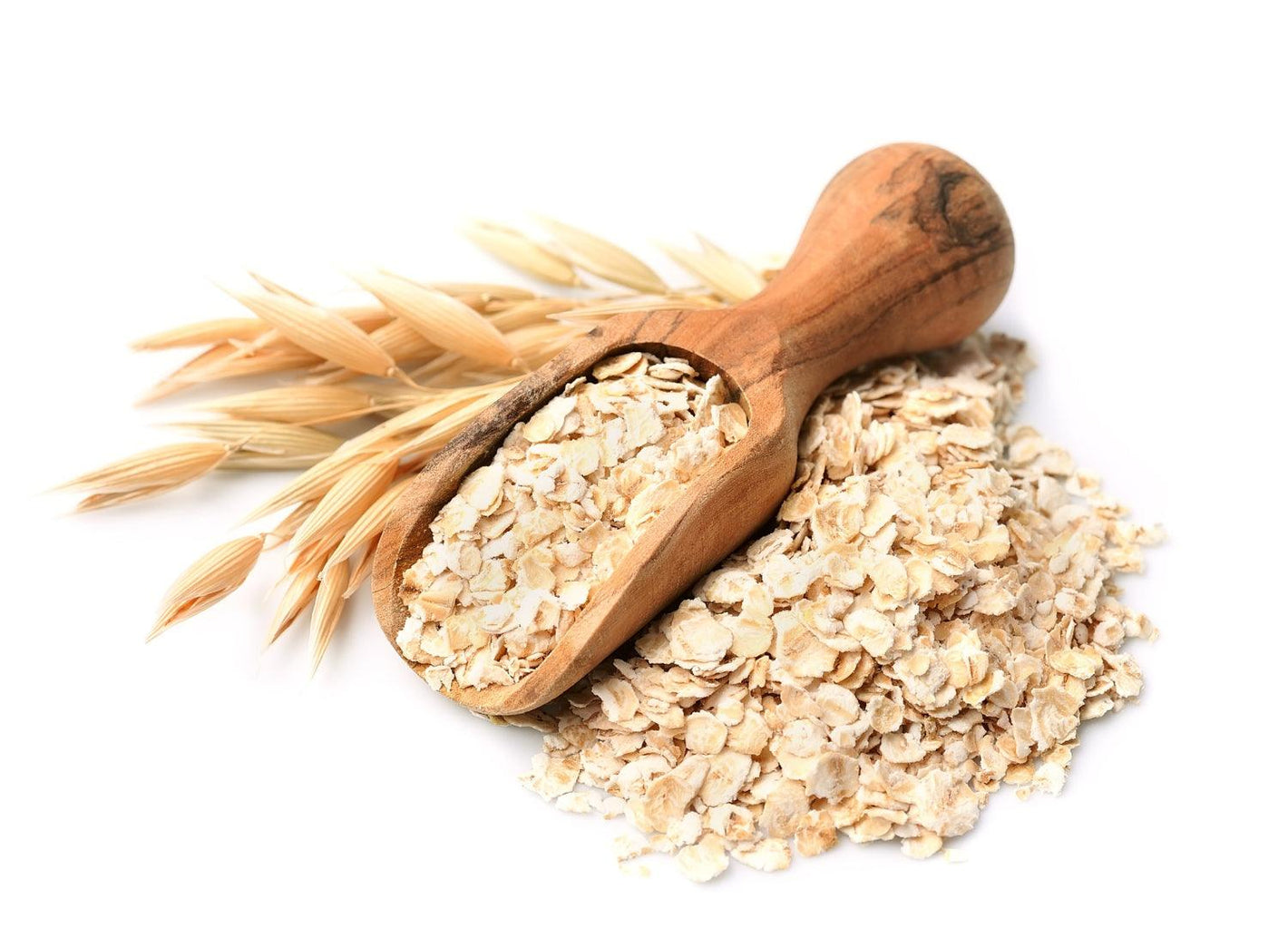
Related products
What is Muesli?
Muesli, a wholesome concoction originally hailing from Switzerland, has evolved into a popular breakfast choice globally. Characterized by its blend of rolled oats, nuts, seeds, and often dried fruits, muesli is not just a mere breakfast option but a versatile food item that can be instrumental in weight management. Dr. Mark, a nutritionist with over 20 years of experience, remarks, "Muesli, owing to its high fiber and protein content, can be a cornerstone in diets aimed at weight loss, provided it is consumed mindfully."
A key aspect of muesli that makes it conducive to weight loss is its nutrient density. It's packed with fiber, a crucial element in weight management. Fiber aids in digestion, promotes satiety, and thereby reduces overall calorie intake. As per a study published in the 'Journal of Nutrition', individuals with a high fiber intake were found to have a lower body weight. Muesli's composition, predominantly of whole grains, seeds, and nuts, provides a balanced mix of slow-releasing energy carbohydrates, proteins, and healthy fats, which are integral to a weight loss regimen.
In the broader context of diet and weight management, muesli plays a multifaceted role. It's not just about calorie counting; the quality of calories matters immensely. Professor Michael Brown, a renowned dietitian, explains, "Incorporating muesli into your diet can be a strategic move towards weight loss, as it aligns with the principles of a balanced and nutritious diet, crucial for sustainable weight management." This aligns with the growing consensus among health experts that a holistic approach towards diet, focusing on nutrient-rich and unprocessed foods, is more effective for long-term weight management than restrictive dieting.
Muesli's potential in aiding weight loss also lies in its versatility. It can be adapted to various dietary preferences and restrictions, making it a suitable option for a wide range of individuals. Whether it's a quick breakfast, a midday snack, or even a light dinner, muesli can be tailored to fit into any meal plan effectively. This adaptability not only makes it a practical dietary choice but also ensures that individuals do not feel restricted or bored, which is often a challenge in weight loss journeys.
Furthermore, the role of diet in weight management transcends beyond the physical aspects. It has a profound impact on psychological well-being. As Dr. Emily Johnson, a clinical psychologist specializing in eating behaviors, points out, "Dietary choices like incorporating muesli can have positive psychological effects. It can enhance one's sense of control and accomplishment, which are critical in the journey of weight loss." This psychological aspect is crucial as it underscores the importance of enjoying what one eats, which in turn, can lead to healthier, sustainable eating habits.
Muesli, with its rich nutritional profile and flexibility, stands out as an excellent dietary option for those aiming to lose weight. By integrating muesli into one's diet, individuals can enjoy a delicious, satisfying meal that aligns with the goals of weight management, both physically and psychologically. As the key theme of this article suggests, the journey of weight loss is not just about reducing numbers on a scale; it's about making informed, enjoyable, and sustainable dietary choices, and muesli fits perfectly into this narrative.
Nutritional Composition of Muesli
The nutritional composition of muesli is a tapestry of wholesome ingredients, each contributing significantly to its health benefits, especially in the context of weight loss. Muesli typically includes rolled oats, nuts, seeds, and dried fruits. This combination results in a nutrient-packed meal that is rich in fiber, protein, and healthy fats, along with essential vitamins and minerals.
Key Ingredients
- Rolled Oats: The foundation of most muesli mixes, rolled oats are a rich source of beta-glucan, a type of soluble fiber that aids in digestion and prolongs satiety.
- Nuts: Commonly almonds, walnuts, and cashews, nuts add a healthy dose of monounsaturated and polyunsaturated fats, protein, and fiber. These are crucial for heart health and maintaining muscle mass during weight loss.
- Seeds: Including chia seeds, flaxseeds, or pumpkin seeds, these are powerhouses of omega-3 fatty acids and fiber.
- Dried Fruits: Often found are raisins, apricots, and apples, which provide natural sweetness and fiber. They also offer an array of vitamins and minerals, such as potassium and iron.
Nutritional Breakdown

Muesli's nutritional profile is distinguished by its high fiber and protein content, which are pivotal for weight loss. A standard serving of muesli can offer around 4 to 7 grams of fiber and 5 to 10 grams of protein, depending on the specific ingredients used. The presence of complex carbohydrates in oats provides sustained energy release, aiding in appetite control. Additionally, the nuts and seeds contribute to the protein and healthy fat content, which are essential for muscle repair and satiety.
Comparison
When compared to other traditional breakfast choices, muesli stands out for its balanced nutritional composition:
- Cereal: Many commercial cereals are high in added sugars and low in fiber and protein. In contrast, muesli, especially when unsweetened, offers a more balanced meal with lower sugar content and higher fiber.
- Breakfast Bars: Often marketed as healthy, many breakfast bars are laden with sugars and preservatives. Muesli offers a more natural and less processed alternative.
- Yogurt and Granola: While this can be a healthy option, granola is sometimes high in added sugars and fats. Muesli can be a lower-calorie, higher-fiber substitute.
- Pancakes/Waffles: These often consist of refined flour and are typically served with high-calorie toppings. Muesli provides a nutrient-rich, lower glycemic index alternative.
Muesli's nutritional composition makes it an excellent breakfast choice for those looking to lose weight. Its combination of fiber, protein, healthy fats, and complex carbohydrates provides a balanced meal that can keep you full longer, help in managing calorie intake, and maintain overall health. The key is choosing a muesli mix that is low in added sugars and high in natural, whole ingredients, aligning with the overarching theme of this article – making nutritious and satisfying dietary choices for effective weight loss.
Understanding the Connection
The role of muesli in weight loss is multifaceted and deeply rooted in its nutritional profile. Central to its effectiveness are the high fiber content, quality protein, and low glycemic index of its ingredients. Understanding how these factors interplay can provide insights into why muesli is a smart choice for those aiming to lose weight.
Role of Fiber
Fiber is a key player in weight management, and muesli is an excellent source of this essential nutrient. The presence of soluble fiber, particularly from oats in muesli, slows down the process of digestion and absorption of carbohydrates. This slowing down effect not only helps in regulating blood sugar levels but also extends the feeling of fullness, reducing the likelihood of overeating.
Dr. Laura Green, a nutrition expert, emphasizes the role of fiber in weight loss: "Fiber-rich foods like muesli can significantly contribute to weight loss efforts. They increase satiety, reduce appetite, and help in lowering overall calorie intake." A study published in the 'American Journal of Clinical Nutrition' supports this, revealing that an increase in dietary fiber intake led to a decrease in body weight in participants.
Impact of Protein Content
Protein is another crucial component of muesli that aids in weight loss. The nuts and seeds in muesli are not only sources of healthy fats but also provide high-quality protein. Protein plays a vital role in muscle maintenance, especially important during weight loss, to ensure that the body is losing fat and not muscle mass. Moreover, protein has a higher thermic effect than fats or carbohydrates, meaning the body uses more energy to digest and metabolize it, thereby boosting metabolism.
"Protein intake is essential for muscle preservation and metabolism during weight loss," states fitness expert James Carter. "Muesli's combination of nuts, seeds, and grains makes it a balanced source of protein, ideal for those trying to lose weight."
Low Glycemic Index
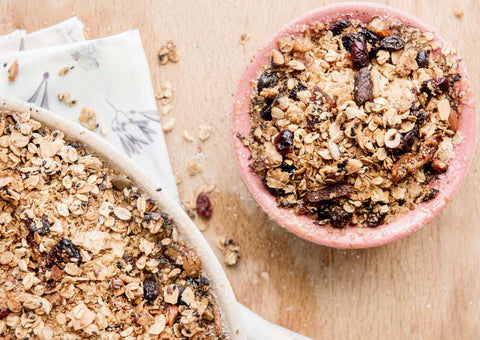
The glycemic index (GI) is a measure of how quickly a food raises blood sugar levels. Foods with a low GI, like muesli, are digested and absorbed more slowly, leading to a gradual rise in blood sugar and insulin levels. This is beneficial for weight management as it helps in controlling appetite and reducing subsequent calorie intake.
Muesli's low GI is primarily due to its whole grains and fiber content. "Choosing low GI foods is a smart strategy for weight management," says dietician Emma Wilson. "Muesli, with its low GI, helps in maintaining steady blood sugar levels, preventing the spikes and crashes that can lead to overeating."
The connection between muesli and weight loss is anchored in its rich fiber and protein content, coupled with a low glycemic index. These factors collectively contribute to increased satiety, muscle maintenance, metabolic rate, and stable blood sugar levels – all essential components in a successful weight loss journey. Thus, incorporating muesli into one's diet, especially as a start to the day, aligns perfectly with the overarching theme of making nutritional and satisfying dietary choices for effective weight management.
Choosing the Right Type
When it comes to weight loss, not all muesli is created equal. Selecting the right type is crucial to ensure that you reap the maximum benefits from this nutritious food. Here are some guidelines to help you choose the best muesli for your weight loss journey.
Criteria
-
Low Sugar Content: Many commercial muesli blends contain added sugars or sweeteners. Opt for varieties that are low in sugar or unsweetened. Nutritionist Dr. Sarah Johnson advises, "Always check the label for sugar content. Aim for muesli with less than 5g of sugar per 100g serving."
-
High Fiber Content: Look for muesli that is high in fiber, particularly soluble fiber, which is more filling and beneficial for digestive health. A good muesli should provide at least 3g of fiber per serving.
-
Whole Grain Oats: Choose muesli that lists whole grain oats as the first ingredient. Whole grains are less processed and retain more nutrients and fiber.
-
Nut and Seed Content: Muesli that includes nuts and seeds offers additional protein and healthy fats, which are essential for satiety and overall nutrition.
Identifying and Avoiding
Beware of muesli varieties that contain high-calorie additives like chocolate chips, honey-coated nuts, or dried fruit in sugary syrup. These not only add extra calories but also increase the sugar content of the muesli. Instead, look for natural, unsweetened ingredients. "The simpler the ingredient list, the better," suggests dietitian Emily Foster. "Avoid muesli with ingredients you don't recognize or that sound like additives."
Recommended Brands in UK
For those in the UK, here are some recommended muesli brands that align with the criteria for weight loss:
1. Dorset Cereals Simply Delicious Muesli:
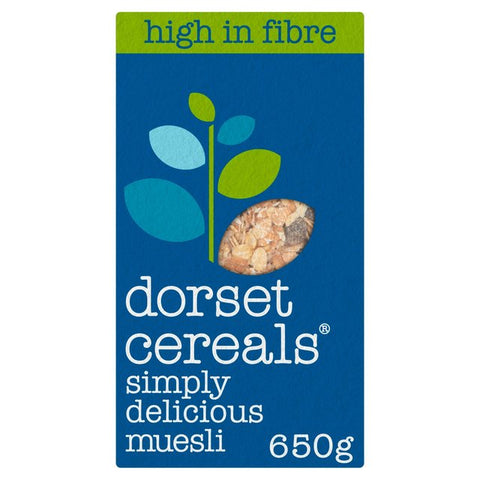
This muesli is high in fiber and made with whole grains, nuts, and seeds, without added sugar. It's a great option for a nutritious start to the day.
2. Alpen No Added Sugar Muesli:
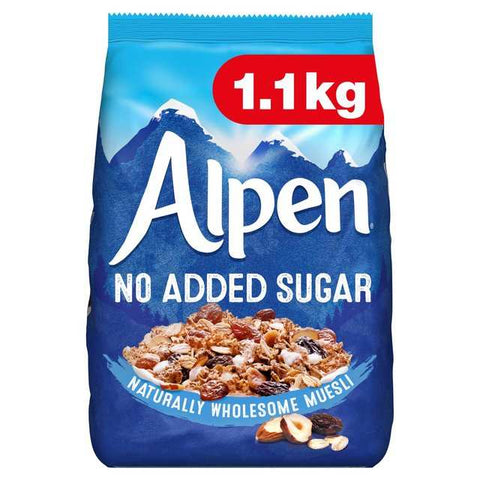
Known for its high whole-grain content and low sugar levels, this muesli is ideal for those watching their sugar intake.
3. Lizi's Low Sugar Granola:
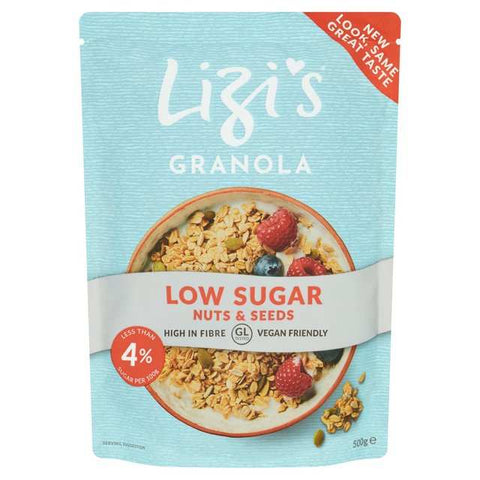
While technically a granola, this product is low in sugar and high in fiber, making it a good choice for weight management.
4. Waitrose Duchy Organic Original Muesli:
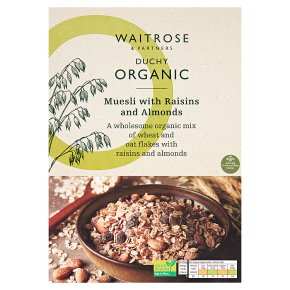
This organic option is made with natural ingredients and no added sugar, providing a wholesome and filling breakfast option.
5. Jordan's Natural Muesli:

With no added sugar, this muesli is packed with whole grains, nuts, and seeds, making it a nutritious choice for those looking to lose weight.
Choosing the right type of muesli for weight loss involves careful consideration of sugar content, fiber levels, and the quality of ingredients. Opting for natural, whole-grain, low-sugar muesli, and being mindful of calorie-dense additives, can significantly contribute to your weight loss goals. Remember, the best muesli is one that not only supports your weight loss objectives but also aligns with your taste preferences and nutritional needs.
Integrating Muesli
Incorporating muesli into a weight loss diet requires a strategic approach, focusing on portion control, healthy additions, and mindful consumption methods. Muesli, due to its versatile nature, can be adapted to suit various dietary needs and preferences, making it an excellent choice for those looking to lose weight healthily.
Recommendations
Portion control is key in any weight loss diet, and muesli is no exception. A standard serving size of muesli is typically around 30-45 grams (about ⅓ to ½ cup). Dietitian Emily Brown suggests, "Measuring your muesli serving with a cup or scale can help keep calorie intake in check." Sticking to this serving size ensures that you enjoy the benefits of muesli without overindulging in calories.
Healthy Additions
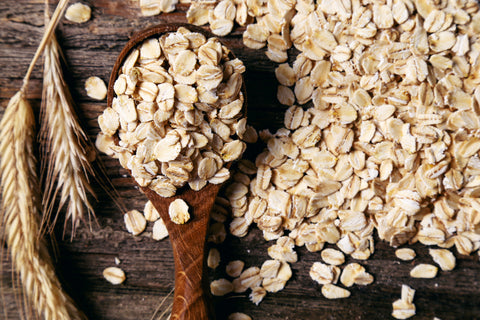
Enhancing your muesli with certain ingredients can boost its weight loss potential:
- Greek Yogurt: For added protein and probiotics, mix your muesli with Greek yogurt. This increases satiety and aids in digestion.
- Fresh Fruits: Berries, apples, or bananas can add natural sweetness and additional fiber, enhancing fullness and nutritional value.
- Nuts and Seeds: A sprinkle of almonds, chia seeds, or flaxseeds can increase the protein and healthy fat content, making the meal more filling.
Guidelines
To maximize the nutritional benefits of muesli:
- Avoid Sugary Toppings: Steer clear of adding extra sugar or sweet syrups. If you need more sweetness, opt for fresh or dried fruit.
- Balance with Protein: Pairing muesli with a protein source, like Greek yogurt or a handful of nuts, can make for a more balanced meal.
Muesli: Hot or Cold?
Muesli can be enjoyed both hot and cold, and each method offers its benefits:
- Cold Muesli: Soaking muesli in milk or a dairy-free alternative overnight (known as overnight oats) can make it easier to digest and enhances the flavors.
- Hot Muesli: Heating muesli with milk or water makes a comforting, porridge-like meal, especially beneficial in colder months. Cooking muesli can also make it easier to digest for some individuals.
Eating Muesli Without Milk for Weight Loss
For those avoiding milk, either for dietary reasons or to reduce calorie intake, there are several alternatives:
- Water: Simply using water can be a low-calorie way to enjoy muesli. While it may not be as creamy, it's certainly effective in weight management.
- Nut Milks: Almond, cashew, or coconut milk can be great low-calorie, dairy-free options to mix with muesli.
- Soy Milk: For a protein boost, soy milk can be an excellent alternative, offering a similar texture to regular milk.
Integrating muesli into a weight loss diet effectively requires mindful choices about portion sizes, additions, and preparation methods. By following these guidelines, you can enjoy muesli as a delicious, nutritious, and satisfying part of your weight loss journey. Remember, the key to successful weight management is not just about what you eat, but also how you eat it, and muesli offers the flexibility to be a part of a varied and balanced diet.
While muesli can be a valuable addition to a weight loss diet, there are potential pitfalls that can hinder its effectiveness. Being aware of these pitfalls and knowing how to avoid them is crucial for successfully incorporating muesli into a weight loss regimen.
Common Mistakes
- Excessive Portions: One of the most common mistakes is overestimating portion sizes. As mentioned earlier, a standard serving is about 30-45 grams. Using measuring tools can help avoid accidentally consuming too many calories.
- Ignoring Sugar Content: Not all muesli is created equal. Some varieties are laden with added sugars, which can counteract your weight loss efforts. Always read labels and choose muesli with low or no added sugars.
- Overlooking Calorie-Dense Additives: It's easy to turn a healthy bowl of muesli into a high-calorie meal by adding too many nuts, dried fruits, or sweeteners. Practice moderation with these additions.
Balancing Muesli
It's essential to consider how muesli fits into your overall diet. Nutritionist Dr. Karen Collins advises, "While muesli can be a healthy choice, it's important to balance its intake with other food groups. Ensure you're also consuming adequate vegetables, lean proteins, and healthy fats throughout the day." This balanced approach ensures that you're not only managing calorie intake but also meeting your nutritional requirements for sustained health and weight loss.
Addressing Misconceptions
- Misconception: Muesli is Always a Healthy Choice: It's a common belief that all muesli is inherently healthy. However, some commercial brands can be high in calories and sugar. It's important to choose wisely and not assume that all muesli is equal in terms of health benefits.
- Misconception: Muesli Alone Leads to Weight Loss: Some people might think that simply adding muesli to their diet will lead to weight loss. However, weight loss is a result of an overall balanced diet and calorie deficit. Muesli should be part of a broader, healthy eating plan.
- Misconception: More Muesli Means More Weight Loss: Eating more muesli does not necessarily mean you'll lose more weight. Portion control is crucial, as consuming too much can lead to an excess in calories, negating its weight loss benefits.
Incorporating muesli into a weight loss diet can be highly effective when done correctly. Avoiding common pitfalls such as excessive portions, not checking for added sugars, and balancing muesli intake with other dietary needs are key to leveraging its benefits. It's also important to dispel misconceptions about muesli and understand that while it can be a nutritious component of a weight loss diet, it should be part of an overall balanced and calorie-controlled diet. With these considerations in mind, muesli can be a delicious, satisfying, and nutritious addition to a weight loss journey.
Additional Tips for Weight Loss
While integrating muesli into your diet is a positive step towards weight loss, it is just one part of a broader strategy. Achieving and maintaining a healthy weight involves a combination of a balanced diet, regular exercise, complementary dietary practices, and addressing the psychological aspects of eating and weight loss.
Balanced Diet and Regular Exercise
A balanced diet is fundamental to weight loss and overall health. It should include a variety of foods to ensure you're getting all the necessary nutrients. Fruits, vegetables, lean proteins, whole grains, and healthy fats should all be part of your daily intake. Portion control and mindful eating are also key components of a balanced diet.
Regular physical activity complements dietary efforts in weight loss. Exercise not only burns calories but also builds muscle, which can increase your resting metabolic rate. The NHS recommends at least 150 minutes of moderate-intensity activity a week or 75 minutes of vigorous-intensity activity a week, along with strength exercises.
Complementary Foods
In addition to muesli, incorporating other foods and practices can enhance weight loss:
- Hydration: Drinking plenty of water is essential for overall health and can aid in weight loss. Sometimes thirst is mistaken for hunger, so staying well-hydrated can prevent unnecessary snacking.
- Protein-Rich Foods: Lean meats, fish, beans, and legumes can keep you fuller for longer and are vital for muscle repair and maintenance.
- Healthy Snacking: Opt for snacks like fruits, nuts, or yogurt, which are nutritious and can curb hunger between meals.
- Meal Planning: Planning meals in advance can help you make healthier choices and avoid impulsive eating.
Psychological Aspects
The psychological aspect of weight loss is as important as the physical one. A positive mindset, motivation, and realistic goal setting are crucial:
- Set Realistic Goals: Setting achievable weight loss goals can prevent disappointment and help maintain motivation.
- Mindful Eating: Being mindful of what and how much you eat can lead to better food choices and portion control.
- Seek Support: Whether it's from friends, family, or weight loss groups, having support can make a significant difference in your journey.
- Address Emotional Eating: Understanding and addressing the reasons behind emotional eating can be key to successful weight loss.
Weight loss is a multifaceted journey that extends beyond just dietary changes. A holistic approach that includes a balanced diet, regular physical activity, complementary dietary practices, and a positive psychological outlook is essential. By incorporating these elements into your lifestyle, along with muesli as a nutritious part of your diet, you can create a sustainable path towards achieving and maintaining a healthy weight. Please remember that weight loss often requires a holistic approach, incorporating, calorie deficits, active and healthy activity levels and in some instances - where appropriate the use of medical assistance with products such as Wegovy.
Conclusion
Muesli, with its rich nutritional profile, offers numerous benefits for those seeking to lose weight. The high fiber and protein content, along with a low glycemic index, make it an ideal choice for a filling and nutritious meal that can aid in weight management. However, the effectiveness of muesli in a weight loss regime is contingent upon mindful choices - selecting the right type, maintaining portion control, and being aware of additives and preparation methods.
It's important to acknowledge that while muesli can be a valuable component of a weight loss diet, it should not be viewed in isolation. Weight loss and overall health are best achieved through a holistic approach that includes a balanced diet encompassing a variety of nutrients, regular physical activity, and a consideration of the psychological aspects of eating and lifestyle changes. Muesli fits well into this broader picture, offering versatility and nutritional benefits that can complement other healthful practices.
Furthermore, addressing common misconceptions and potential pitfalls around muesli is crucial. Understanding that not all muesli is created equal and that its benefits are maximized when it's part of an overall healthy and balanced diet is key.
When chosen wisely and consumed in appropriate portions, can be a fantastic addition to a weight loss diet. Its ability to be both nutritious and versatile makes it an excellent choice for anyone looking to lose weight in a healthy and sustainable manner. Remember, the journey to weight loss is not just about cutting calories or following a strict diet; it's about making informed, balanced, and enjoyable dietary choices, and muesli can be a part of this enjoyable journey towards a healthier lifestyle.



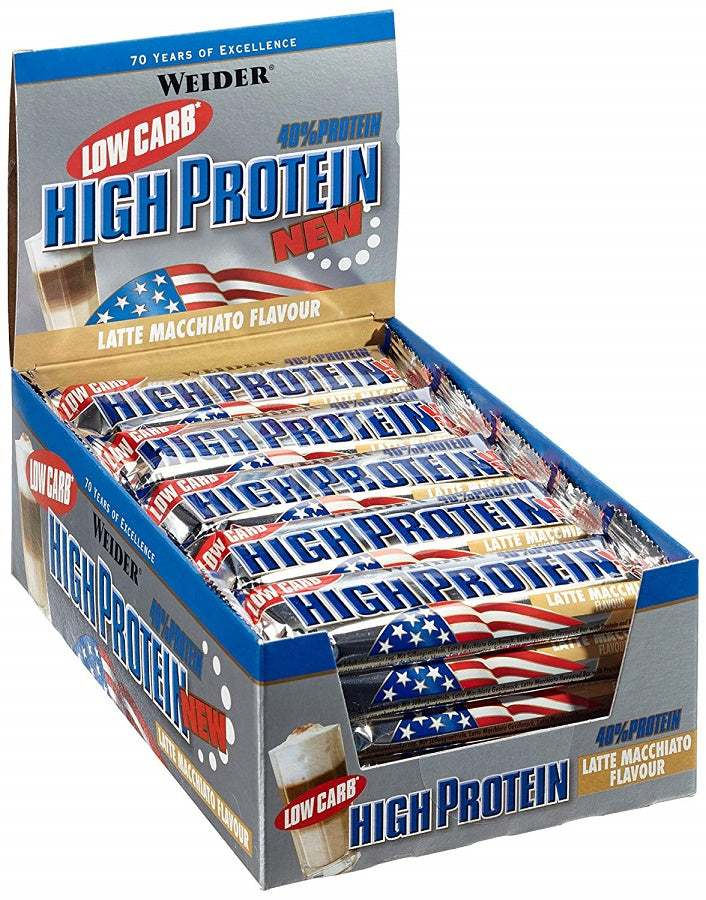








 Rated Excellent by 14,617+ Reviews
Rated Excellent by 14,617+ Reviews